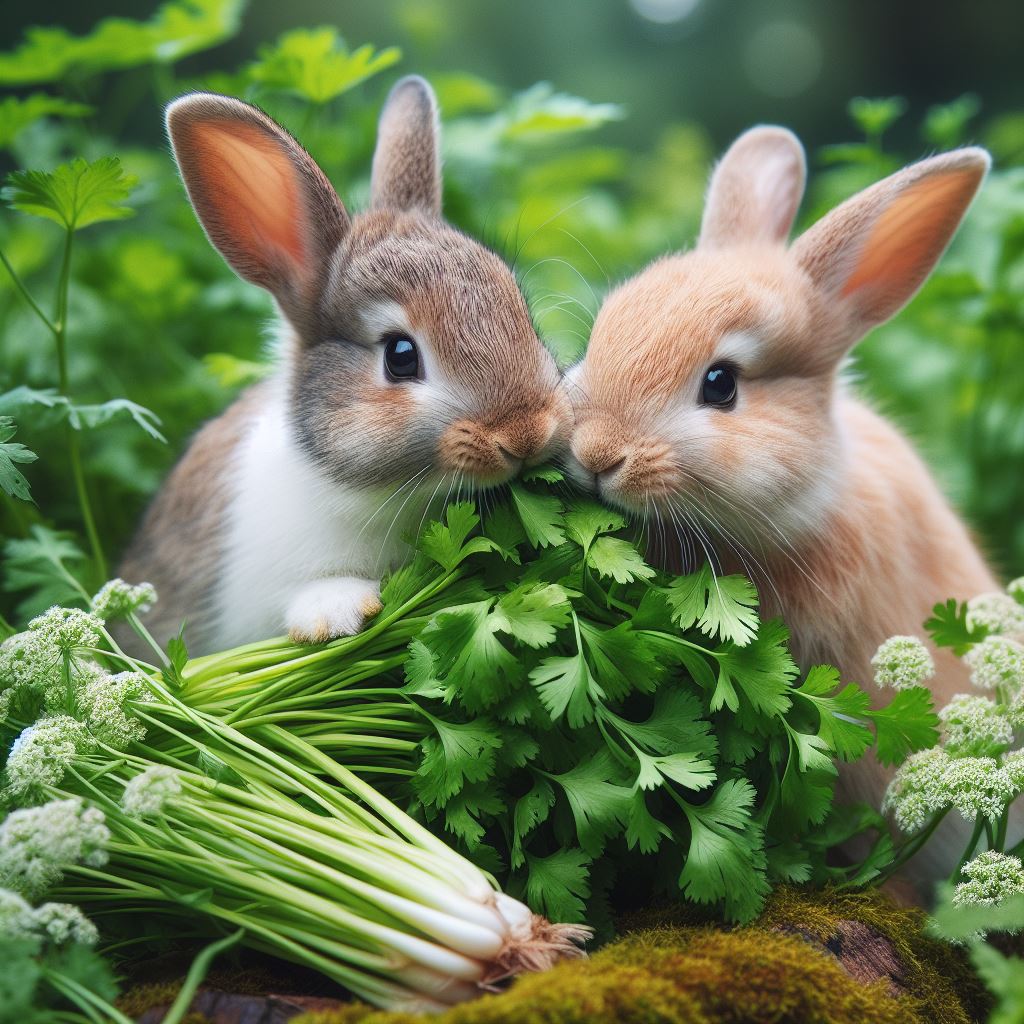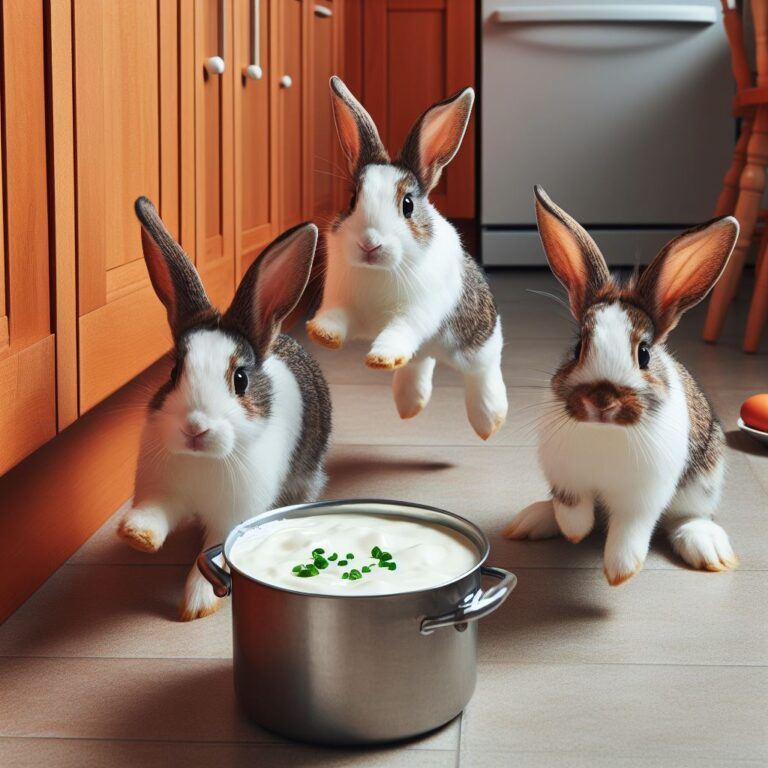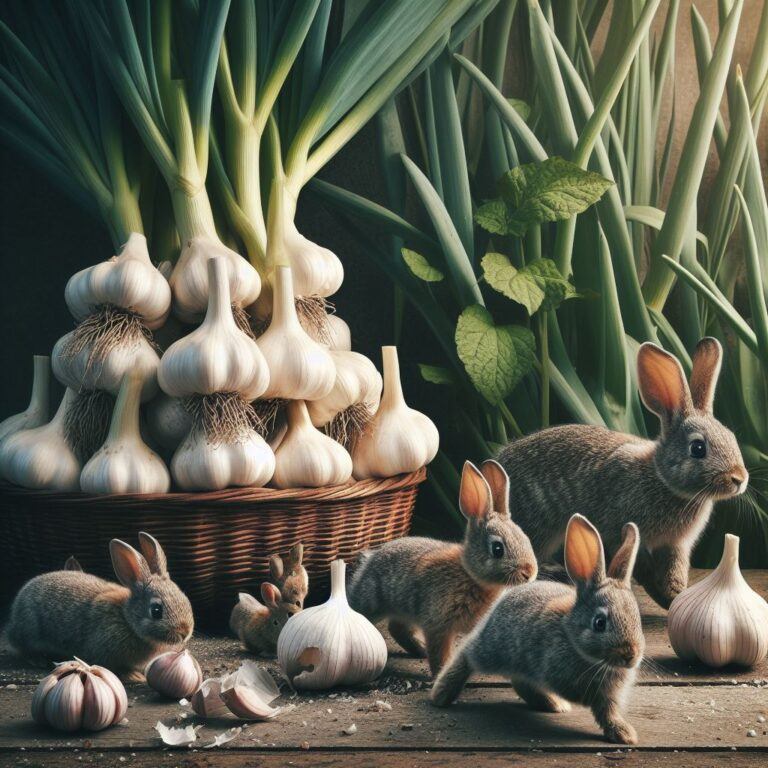Can Rabbits Safely Eat Coriander
Yes, rabbits can safely eat coriander, which is also known as cilantro or Chinese parsley. Coriander is an excellent addition to a rabbit’s diet when fed in appropriate portions due to its nutritional benefits. However, it should only make up a small part of their daily intake.
Ensuring your rabbit receives a balanced, high-fiber diet is essential for their overall health and well-being.
As an herbivore, a rabbit’s main food source should be unlimited grass hay, supplemented with fresh leafy greens such as romaine lettuce, spinach, cabbage, kale and a limited amount of vegetables, which could include bell peppers, broccoli, or pumpkin.
Including an occasional fruity treat like a slice of strawberry, watermelon, or banana here or there shouldn’t do much harm either, my bunnies love a bit of variety in their diets!
A Rabbit’s Dietary Needs and How Can Coriander Help
Rabbits require a diet high in insoluble fiber to support their unique digestive system and prevent issues like gastrointestinal stasis.
Good quality grass hay, such as timothy or orchard grass, should make up the bulk of their food intake, at least 80%.
Fresh greens and vegetables provide essential vitamins, minerals, and nutrients that round out a rabbit’s nutritional needs. Coriander is an excellent option when fed appropriately as part of this supplementary portion of their diet.
Coriander is packed with beneficial nutrients for rabbits:
- High in vitamins A, C, and K for vision, immunity, and blood clotting
- Good source of minerals like manganese, iron, and magnesium
- Contains antioxidants that support overall health
- Low in calories and high in insoluble fiber for digestion
Additionally, many rabbits enjoy the distinct flavor of coriander, making it a tasty and nutritious treat option.
Benefits and Potential Risks of Feeding Coriander to Rabbits
Incorporating coriander into your rabbit’s varied diet can provide several benefits:
Hydration: With its high water content, coriander can help keep your rabbit hydrated, especially during the warm weather that the summer months can bring, depending on where one lives of course.
Vision Support: Coriander is an excellent source of vitamin A, which is crucial for maintaining good eyesight in rabbits.
Immune Boost: The vitamin C in coriander supports a healthy immune system to fight off infections and diseases.
Digestive Health: The insoluble fiber aids in preventing obesity, hairballs, and digestive issues common in rabbits.
Despite these advantages, it’s important to be aware of the potential risks of overfeeding coriander:
Gas and Bloating: Like any new food, introducing too much coriander too quickly can lead to gas, bloating, and potentially a digestive upset.
Calcium Issues: Coriander contains moderate levels of calcium, which in excess may contribute to sludge accumulation in the bladder of our furry friends.
Allergic Reaction: Some rabbits may have sensitivities or allergies to coriander that could cause skin, respiratory, or digestive issues.
Portion control is key when feeding any new vegetable or herb. Start with minimal amounts of coriander and monitor your rabbit’s reaction before increasing portions.
Properly Serving Coriander to Rabbits
If you decide to add a bit of coriander into your rabbit’s diet, follow these guidelines for safe feeding:
- Buy Organic: Choose organic coriander when possible to avoid pesticide residues that could be harmful to rabbits.
- Wash Thoroughly: Always wash coriander leaves thoroughly to remove any dirt, debris, or potential contaminants before feeding.
- Feed Leaves Only: Avoid feeding the thick coriander stems, as these can pose a choking hazard and are difficult for rabbits to digest.
- Portion Sizes: An appropriate serving size is a few coriander sprigs or 1-2 tablespoons of chopped leaves for an average-sized adult rabbit.
- Variety is Key: While nutritious, coriander should be rotated with other safe greens and vegetables to ensure a balanced, varied diet.
- Acclimate Slowly: Introduce coriander gradually, starting with just a small piece or two. Observe your rabbit’s reaction for 24 hours before increasing portions.
- Signs to Watch For: Be alert for any changes in appetite, digestive issues like diarrhea, or other abnormal behavior after eating coriander. Stop feeding if problems arise.
As with any new food, it’s best to consult your veterinarian, especially if your rabbit has any existing health conditions. They can provide personalized advice on safely introducing coriander based on your rabbit’s specific dietary needs.
With the proper preparation and portion control, coriander can be a healthy, flavorful addition to supplement your rabbit’s primary diet of unlimited grass hay.
A balanced, varied diet is always key to keeping your furry friend happy and healthy.







